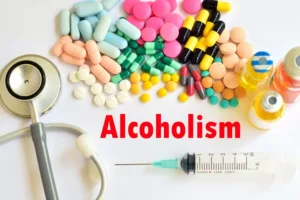The Angry Drunk: How Alcohol and Aggression Are Linked
- admin
- February 22, 2021
- Sober living
- 0 Comments

More recently, a significant, small effect size was reported for the association between alcohol intake and aggression in female subjects who consumed alcohol compared to those who did not drink, in response to a subsequent aggression paradigm (Crane et al., 2017). The present study is going to explore the relationship of anger with treatment outcome among alcohol users after 1 year of treatment. The data for the present study were taken from the project work on correlates of anger among alcohol users, funded by center for addiction medicine, NIMHANS, Bengaluru, Karnataka, India. I3 Theory provides the organizational framework to develop clear and testable models of alcohol-aggression etiology. Because of its theoretical inclusiveness, process-based theories can then be brought to bear to examine how hypotheses related to risk can be translated into process-oriented mediation models. There is little debate that alcohol is a contributing cause of aggressive behavior.
- Listen to relatives, friends or co-workers when they ask you to examine your drinking habits or to seek help.
- PHPs accept new patients, and people who have completed an inpatient program and require additional intensive treatment.
- Suddenly, the person they know and care for is a much different, angrier person — short-tempered, abusive and often violent.
- It also raises the risk for negative consequences of outbursts related to explosive and uncontrolled anger.
Why is anger so common among people who drink?

By exploring the underlying mechanisms and psychological impacts, we can educate ourselves on how to deal with these dynamics effectively. From Table 2, the mean scores of Anger expression out, anger expression in, anger expression outside, and anger control inside among the two groups and they are not statistically significant. The mean scores of trait anger and state anger of relapsers are significantly different from the abstainers.
Psychological “Baggage” and Social Influence
In some people, the initial reaction may feel like an increase in energy. But as you continue to drink, you become drowsy and have less control over your actions. Because denial is common, you may feel like you don’t have a problem with drinking. You might not recognize how much you drink or how many problems in your life are related to alcohol use. Listen to relatives, friends or co-workers when they ask you to examine your drinking habits or to seek help.
Alcohol and Domestic Abuse/Violence
Alcohol can fuel rage or aggressive behaviors even when a person isn’t intoxicated. Learning to be more responsible for your actions takes time, but it’s a necessary step for individuals who have alcohol and anger management problems. As you become more self-aware, you’ll make better choices about alcohol consumption. In addition to receiving guidance from experienced professionals, support groups are effective for building relationships.
- Finally, although beyond the scope of the present paper, consideration of multiple dimensions of affect and affective disorders may lead to a deeper understanding of the role of anger and other negative affect states in the treatment of alcohol dependence.
- For many, alcohol is consumed in social settings as a way to relax or even celebrate.
- For individuals already dealing with anger issues, alcohol can intensify and magnify these underlying challenges.
- Instigating factors normatively produce an urge to behave aggressively (e.g., provocation).
- Understanding the link between anger and alcoholism involves recognizing how emotions influence human biology and the negative impact of anger on our lives and relationships.
If You Know You’re an Angry Drunk, What Can You Do?
Support groups or addiction counseling can tackle the underlying issues effectively. Depending on the frequency of your use, you may need to discuss alcohol tapering strategies with your doctor. Heavy drinkers can experience severe and sometimes life threatening symptoms when reducing alcohol intake, so it’s important to have medical support. While psychotherapy is the alcoholism and anger primary approach for co-treatment of alcohol use and anger management, medications like mood stabilizers and those used to treat substance withdrawal may also be part of your treatment plan. It’s common for alcohol and anger to be stereotypically lumped together, but many people labeled “angry” while drinking may actually be experiencing aggression or hostility.

Less Cognitive Function
Therefore, people who rely on drinking as a coping mechanism can be more inclined to make rash choices, such as having unprotected sex or getting into a car with a stranger. Because alcohol is a psychoactive drug, it temporarily alters your mood, perception and feelings. For example, if you start drinking when you’re lonely and sad, you https://ecosoberhouse.com/ may find the alcohol makes you feel even more desolate and distressed than you did when you were sober. But in real life, a person who loses control of their emotions when they drink is anything but entertaining. People spend years in therapy and in treatment for issues of their own that are caused by the consequences of this behavior.

Since this research was conducted, the study of predictors of outcome has progressed substantially (c.f., Adamson, Sellman & Frampton, 2009 for a review). Return to problematic drinking often occurs after treatment for alcohol dependence, even when that treatment was initially successful. Relapsed individuals often start another negative cycle of alcohol-related problems and suffering in themselves and others (Lowman et al., 1996; Marlatt & Gordon, 1980).

Encouraging responsible alcohol consumption and hydration can help mitigate the risk of escalating emotions. Water and non-alcoholic beverages can help dilute alcohol intake and promote clearer thinking. When alcohol is involved, emotions can run high, and conflicts may escalate rapidly. Thus, assessing the level of risk is paramount to ensure personal safety and promote a constructive resolution. The connection between alcohol consumption and anger is complex, with alcohol often acting as a catalyst that amplifies underlying challenges related to anger management.